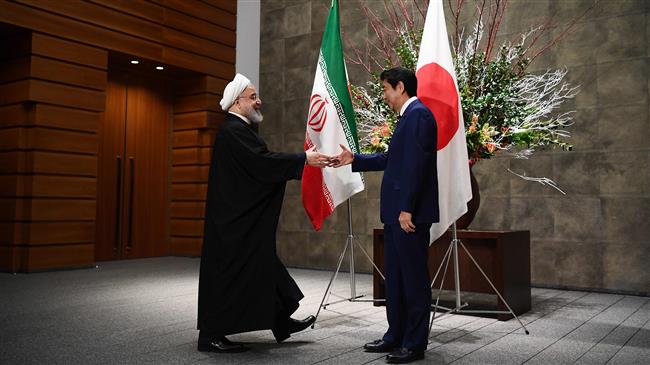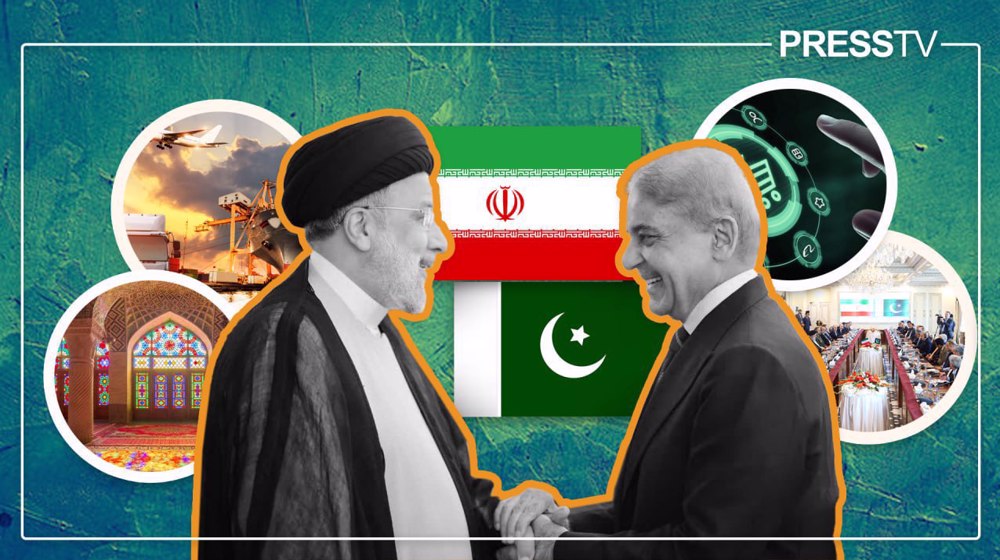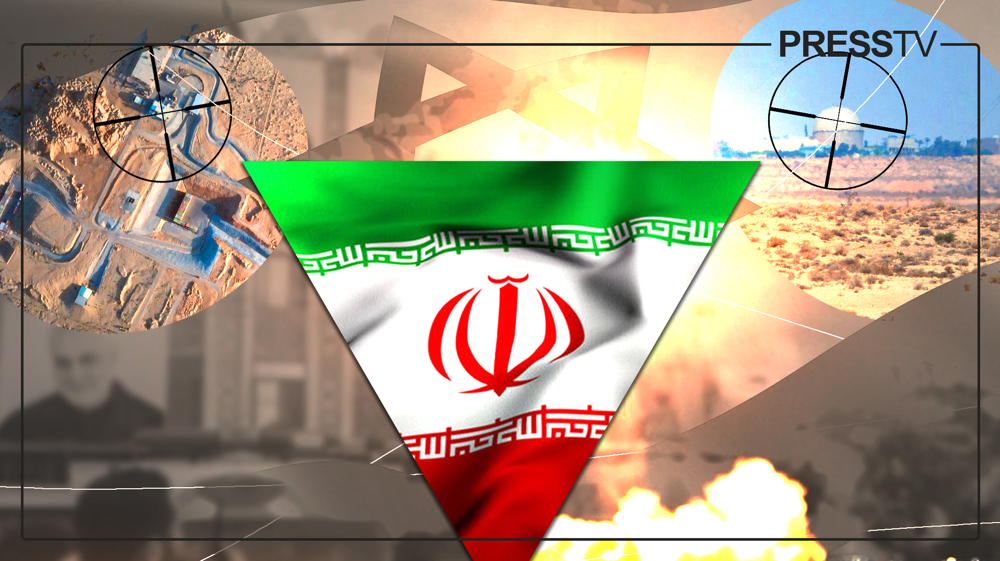The Weekly: Our most important stories from last week
The Weekly is a brief look back at the most consequential news from last week with a view to putting them in context. Published every Monday, The Weekly retells each of the selected stories, adds a little perspective, and gives directions as to where things may be headed.
This past week, (Dec. 16 to 23, 2019), our most important stories were about: Iranian President Hassan Rouhani’s trip to Japan, the expansion of protests against controversial citizenship reforms in India, the seizure of a Turkish vessel by Libyan militia, and impeachment proceedings against US President Donald Trump in the United States.
[1]
The ‘Diplomat Sheikh’ in Japan
Despite Iran’s reluctance to talk to America, Japan has emerged as a de facto, even if unlikely, broker between Tehran and Washington, largely thanks to the good offices of Prime Minister Shinzo Abe.
A close ally of Washington but also a friend of Tehran’s, Japan has activated diplomacy to soothe rising tensions between Iran and America since Mr. Trump’s withdrawal from a multilateral deal with Iran in 2018.
President Rouhani of Iran traveled to Japan on Friday, December 20, 2019, with a declared agenda of discussing security in the Middle East and the Persian Gulf. What that meant, in non-diplomatic language, was discussing a United States-led naval mission in the Persian Gulf, Iran’s backyard.
Japan has been asked to join that mission. Effectively caught between a rock and a hard place, Prime Minister Abe has chosen a middle path: Japan will dispatch a ship to the mission, though not exactly to the Persian Gulf.
The Iranian president — known inside of Iran and throughout much of his long political career as the “Diplomat Sheikh” — most likely sought assurances that that deployment would take place outside of the Persian Gulf.
What else transpired during the Rouhani-Abe meeting may remain unpublicized, at least for a while. That is routine diplomatic fuzziness. But it is counterintuitive to assume that the question of diplomacy involving the United States was not brought up during the Iranian president’s trip to Japan — an Iranian president’s first in 19 years.
(The last time Prime Minister Abe was in the midst of diplomacy with Iran and America, there was much similar vagueness. Would he be carrying a message from America to Iran? Would he not? Ultimately, and during his trip to Iran a while earlier in June, the Japanese premier did convey some kind of a message, even though he did not exactly get to carry one back.)

“I personally do not consider Trump worthy of exchanging any messages with,” Ayatollah Khamenei said, while appreciating Mr. Abe’s own sincerity. Still, for a few visible moments, the prime minister was not as comfortable. (Photo by khamenei.ir)
And, after the Iranian president left Japan, Mr. Abe spoke to Mr. Trump on the phone about the visit, too.
It is safe to assume, then, that Mr. Trump — who has shown much eagerness to talk to America’s putative adversaries — may have relayed yet another message. Whether he appears (tweets) in the following days with aggravated anger toward Iran will tell if an exchange happened, and of what quality it was.
[2]
Going against the constitutional grain in India
Since independent India’s birth in 1947, the Hindu Bharatiya Janata Party (BJP) — a rough equivalent of far-right parties in Europe — has ruled India twice (with a very short-lived exception). For the better part of its history, the country has been dominated by the Congress Party, associated the most with the independence campaign, its legendary leader Mahatma Gandhi, and his protégé, Jawaharlal Nehru.
The secularism enshrined in the Indian Constitution and cherished by most liberal Indians comes first and foremost from the teachings of Gandhi — who continues to be popularly known inside of India with an added suffix for respect as “Gandhiji.” That is why when the BJP, under incumbent Prime Minister Narendra Modi, introduced reforms this year to exclude Muslims from a certain citizenship program, protests began in the country, and not just by Muslims.
Last week, however, the protests widened both in number and geographical distribution. So did the casualties from the unrest.
Mr. Modi, a BJP faithful, has not backed away, yet. But there are signs that he may have taken notice of the growing anger, and he did attempt to calm protesters on Sunday — although he did that speaking to BJP supporters.
[3]
Libyan militia testing Turkey’s patience?
Post-revolution Libya has only one government, at least according to international law. But a rival camp has long laid claims to power and has arranged its own “army” of militia under the command of a general by the name of Khalifa Haftar.
On Saturday, December 21, Haftar’s forces seized a Turkish vessel — although Grenada-flagged — and took it to a port in the country’s east, where the unrecognized Libyan political camp has based itself.
That came shortly after the Turkish government approved a security and military pact with the Libyan government. The militia said they would search the vessel’s cargo, suspecting that Turkey could be sending military aid to the government in Tripoli, with which the militia are fighting a battle near the capital.
That is a major escalation. And while Turkey is yet to address that seizure, it has previously promised that there would be a “heavy price” for any aggression against its interests in Libya.
Turkey has shown a penchant for taking military action — even if unauthorized — where it thinks its interests are jeopardized in foreign lands. Libya could be no exception.
So, watch closely for a Turkish response!
[4]
Trump impeached (— or not exactly?)
On Wednesday, December 18, 2019, the US House of Representatives — currently controlled by Democrats — voted to impeach President Trump, a Republican, over his attempts to pressure Ukraine to investigate a political rival, namely former Vice President Joe Biden.
It was a historic vote, even if a divided one.
The vote on the House floor, presided over by House Speaker and a frequent target of Mr. Trump’s scorn Nancy Pelosi, was split almost entirely along party lines. That should tell us something about the partisan — rather than legal — nature of the battle.
Constitutionally, an impeachment trial should begin in the Senate — currently controlled by Republicans — once the House sends the charges (two, in Mr. Trump’s case) there. The trial, if held, would look like just that: a trial. It would be overseen by the chief justice of the United States, a group of House Representatives would act as prosecutors, the president would have defense attorneys, and the Senate would act as the jury.

But that is not happening, yet. Ms. Pelosi has decided to delay the referral of the articles of impeachment to the Senate, effectively halting the process, in a risky attempt to exert influence on Senate Majority Leader Mitch McConnell to agree to certain impeachment-related demands by the Democrats. (She hopes Mr. Trump, who has said he wants “an immediate trial,” would pressure Mr. McConnell to agree to the Democratic demands in order for the trial process to get underway sooner.)
No date has been set for a trial at the Senate as a result.
And while news stories already describe Mr. Trump as the third president in US history to have been impeached, legal experts have said an impeachment has not “technically” occurred.
All of those twists make for more political thrill in the days and weeks to come. So please follow Press TV’s reporting on the impeachment process.
Have a great week!
April 25: ‘Axis of Resistance’ operations against Israeli occupation
Hezbollah hits Israeli military sites near border with rockets, drones
Rwandans strike-back at UK over 'ethically questionable' Rwanda deportation bill
US troops begin construction of controversial pier off Gaza
Israel ‘spoofs’ GPS signals, endangering flight safety amid Gaza war: Report
Iran urges Security Council to address 'belligerent' Israeli atrocities
VIDEO | Leader meets workers on Labor Week
French police called in to break up US-style pro-Palestinian student demo















 This makes it easy to access the Press TV website
This makes it easy to access the Press TV website